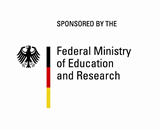In Search of Europe: Considering the Possible in Africa and the Middle East
“In Search of Europe: Considering the Possible in Africa and the Middle East” is an interdisciplinary research project at the ZMO (Zentrum Moderner Orient) in Berlin funded by the German Ministry of Education and Research (BMBF) from June 2010 to May 2014. In tandem with the six researchers, a curator is working on an artistic exhibition project scheduled for 2013 at the Kunstraum Kreuzberg/Bethanien in Berlin.
The project aims to gain an interdisciplinary, empirically grounded and theoretically reflective understanding of the ways people in different parts of Africa and the Middle East engage the idea of “Europe” as a metonymy of possibilities, both in its affirmative and in its critical forms. The focus of the project is therefore not so much on the representations people make of Europe as it is on the way people are compelled to compare themselves with the standards set by European powers in order to think about their own trajectories. The questions we pursue include: What does it mean to pursue a better future in an unequal world? What is Europa standing for in this context? Which are the decisions people in Africa and the Middle East see themselves confronted with? What does it hold in to imagine a better future?
With „In Search of Europa“ we have launched a project which decisively crosses borders: by embracing different geographical regions as well as historical periods within this research project, crossing disciplines through collaborations between researchers from the field of anthropology and Islamic studies, and also visual artists. It is not about a specific region or group of people, but about a specific historical experience, which is shared by many in various parts of the world. We try to understand the importance as well as general aspects of this dynamic by zooming in on specific moments in history as well as in the present. We want to show with this project that this dynamic in question surpasses local and national contexts and carries trans-local facets.
Europeans are accustomed to see themselves as the centre of the world, and studying the ways people elsewhere perceive Europe carries the potential risk of unwittingly reproducing this Eurocentristic bias. But what if “Europe” is not about Europe? What if “Europe” is about building a house in Senegal, claiming civil rights in Egypt, meeting the political challenge of colonial expansion around the Mediterranean? The question about the search for Europe in Africa and the Middle East is one about the search for a better future in an unequal world where some parts of the world set the standards which others have to reckon with.
As a consequence of shifting power relations, colonial expansion and post-colonial dependencies people in many parts of the world find themselves in a situation, where their search for social reforms and a better life is deeply linked with having to compare themselves with Europe as well as other power-centers. The standards are still set there: through economical supremacy, military force, the hegemonic use of specific languages (and exclusion of many others). But also through the world-wide spreading of originally European logics of urban planning, education and statehood, just to name a few.
Simultaneously, exactly those experiences create a rich soil for creative reflections on how to project possibilities for ones own future, on a personal as well as on a societal level. “Europe” thus often comes to represent those things that people consider possible, desirable, dangerous or inevitable in their own society. With this project we therefore want to remove Europe “as such” from the centre and instead focus on the search for points of orientation and spaces of action that, from the point of view of people involved in this search, may allow them to realize social development, economic prosperity, space for cultural expression and personal happiness. What unites these political, social and personal engagements is the creative and critical moment of a search for aspects of agency in the midst of powers that are felt to be inevitable.
Staff:
- Vanessa Díaz
- Bettina Gräf
- Knut Graw
- Aïssatou Mbodj
- Leyla von Mende
- Samuli Schielke
- Daniela Swarowsky
Download the newsletters:

|
ISOE exhibition news #1, 577 KB |

|
ISOE exhibition news #2, 721 KB |


|